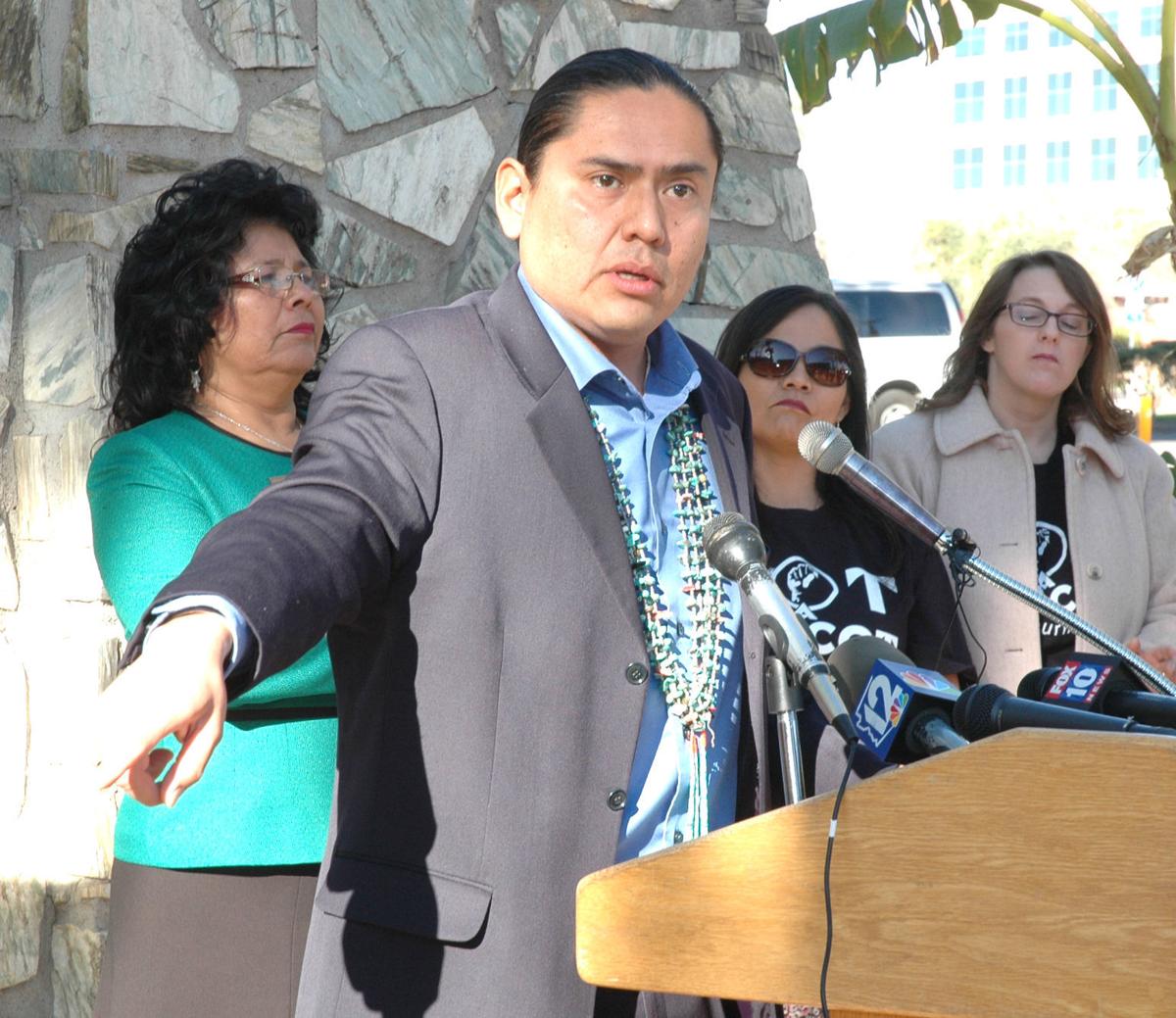PHOENIX — A Native American lawmaker wants the Legislature to pass a new state law to forbid the display of the names or logos of sports teams at publicly funded stadiums in Arizona if any of the state’s 22 tribes finds them “disparaging.”
The legislation by Rep. Eric Descheenie, D-Tuba City, is aimed primarily at the NFL’s Washington Redskins. But Descheenie said it also could affect other professional and college-level teams who have mascots or names that tribes consider offensive.
On Wednesday, Descheenie said he believes HB 2499, if approved, will pass constitutional muster. The key, he said, is that the only conduct that will be prohibited are those actions taken on behalf of the government that owns the facilities.
“Fans can continue to wear, display and say what they want,” he said. And he said nothing prohibits the Washington team from continuing to use what he calls “the R word” as its name or mascot.
What it would do is keep that word and logo — and others that might fall in the same category — from being displayed anywhere in the stadium, whether on the scoreboard, on the giant TV screen or even on any banners mounted in and around any stadium or multipurpose facility “acquired, constructed, financed, leased or maintained with public money.”
That, by definition, goes beyond the University of Phoenix stadium where the Arizona Cardinals play, extending to Chase Field in downtown Phoenix, various spring-training sites, as well as facilities at or operated by the state’s three universities or community colleges.
And that ban would appear to extend beyond sports events to also cover trade shows, meetings and even concerts at any of those same facilities.
“This is not about free speech,” he said.
Descheenie said the First Amendment protects only the rights of individuals and companies to say what they want. What it does not cover, he said, are situations where the government is using its resources to make the statement, precisely what Descheenie said is happening when the word “Redskins” appears on a display at a facility that is owned, run or financed by taxpayers.
The legislation drew the support of Amanda Blackhorse, a member of the Navajo Nation who attempted to get the U.S. Patent and Trademark Office to cancel the registration of the “Redskins” name as offensive. That effort ultimately failed after the U.S. Supreme Court said the provision of federal law allowing cancellation of offensive names runs contrary to the First Amendment.
Blackhorse said psychological studies show that such mascots lower the self-esteem of Native American youths while boosting the self-esteem of non-Native children.
“So while our children suffer, non Natives can feel good about their sports team,” Blackhorse said. “There’s something very wrong with that.”
Descheenie acknowledged under questioning that his legislation, as crafted, would allow the council of a single Arizona tribe to make the unilateral decision of what terms are “disparaging” and impose that decision on publicly funded stadiums statewide. But he was unapologetic for that.
“If one tribe is offended, that’s one too many,” Descheenie said.
He said that the legislation might require some amendments if and when it gets a hearing. So far, though, House Speaker J.D. Mesnard has not assigned the bill to a committee.





